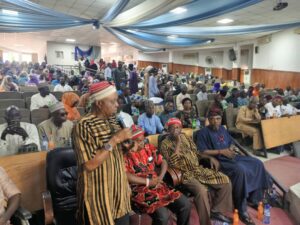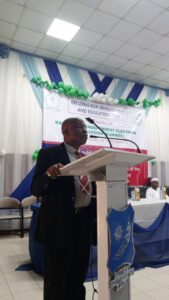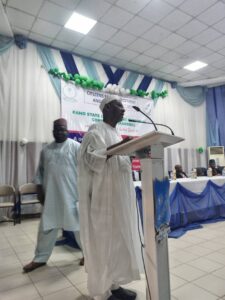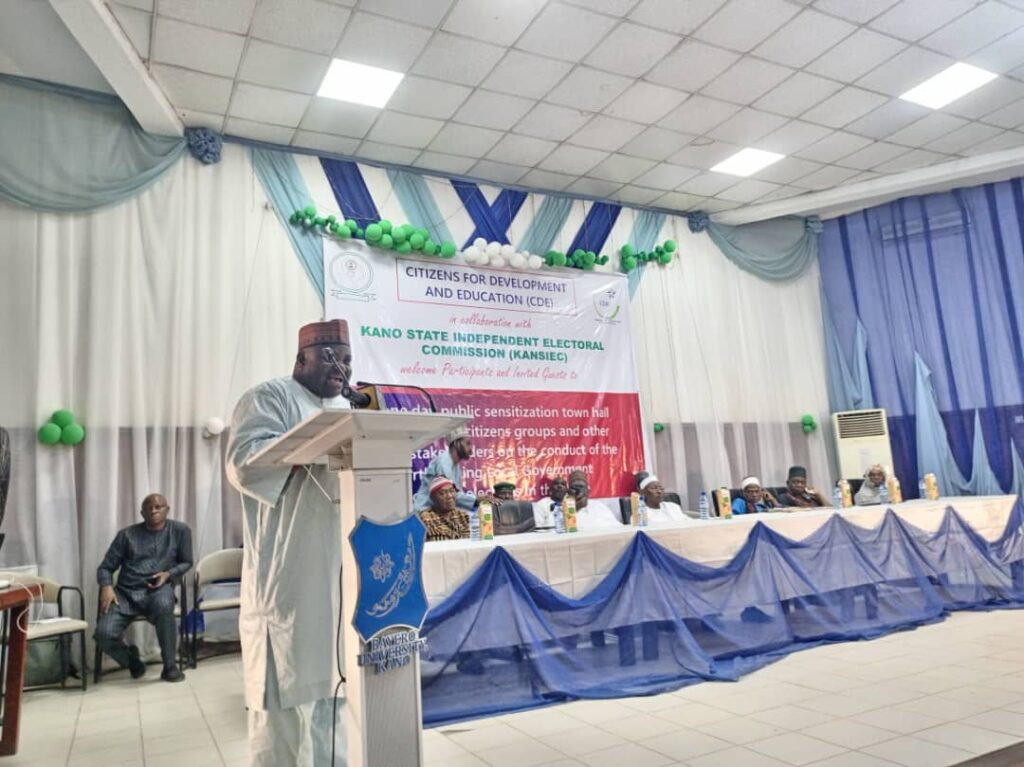Khadijah Aliyu
Citizens for Development and Education CDE, in collaboration with the Kano State Independent Electoral Commission KANSIEC, organized a one-day town hall meeting on public sensitization ahead of the forthcoming local government council elections.
Convener of Kano State Local Government Elections Observation Mission, who doubles as the Founder and National Coordinator of CDE, Ambassador Ibrahim Waiya, explained that the Town Hall meeting was conveyed to create awareness, sensitize the people and ensure a hitch-free Local Government election.
He appealed to residents to come out en masse and exercise their franchise while urging all political parties participating in the election to ensure peaceful and violent-free exercise.
In his remarks on the preparedness to conduct free, fair and credible LG council elections in the state, Professor Sani Lawal Malumfashi explained that KANSIEC has concluded all preparations to ensure hitch-free and fair exercise come Saturday.
He informed the gathering that another ruling is being expected on Thursday which he claimed will affirm the conduct of the election on Saturday, urging all concerned to stop interfering in the activities of KANSIEC.
Former Deputy Governor of Kano state, Professor Hafiz Abubakar who doubles as the chairman of the townhall meeting warned stakeholders to desist from actionnns designed to stop the scheduled October 26 Local Government elections in the state.
He frowned at litigations and counter litigations trailing preparations ahead of the Local Government elections, appealed to all stakeholders to,“think Kano first before their selfish interest.”
The University don wondered why Kano, known for its political consciousness and acclaimed as the most populous state in the country, would not be prepared to hold a hitch-free Local Government election devoid of rancour.
He expressed optimism that “the election will hold, and it is going to be peaceful. Nobody should stop the election from holding in Kano on Saturday.”
The Town Ha ll meeting was attended by women leaders, youth leaders, opinion leaders, and traditional and religious leaders, among others.
ll meeting was attended by women leaders, youth leaders, opinion leaders, and traditional and religious leaders, among others.





